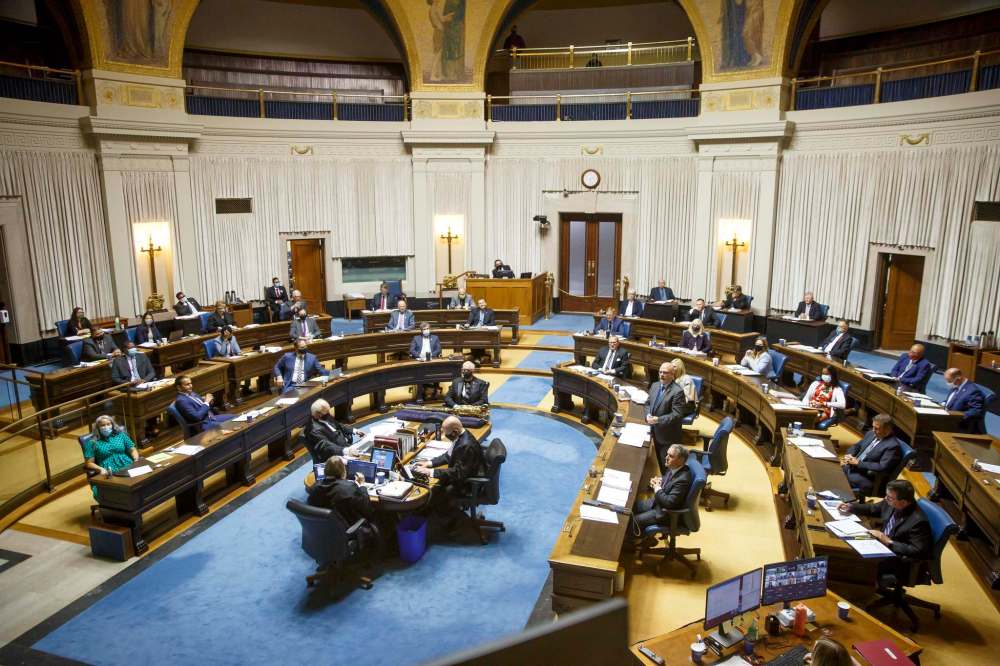Human rights legislation moves toward speedier results
Read this article for free:
or
Already have an account? Log in here »
To continue reading, please subscribe:
Monthly Digital Subscription
$19 $0 for the first 4 weeks*
- Enjoy unlimited reading on winnipegfreepress.com
- Read the E-Edition, our digital replica newspaper
- Access News Break, our award-winning app
- Play interactive puzzles
*No charge for four weeks then billed as $19 plus GST every four weeks. Offer only available to new and qualified returning subscribers. Cancel any time.
Read unlimited articles for free today:
or
Already have an account? Log in here »
Hey there, time traveller!
This article was published 01/11/2021 (1150 days ago), so information in it may no longer be current.
Long-awaited, looming changes to Manitoba’s human rights code seek to speed up the complaint process, aiming to tackle a backlog that has seen cases languish for years.
The Human Rights Amendment Act has been proclaimed, and will take effect Jan. 1.
It sets new time limits for cases to move through the Manitoba Human Rights Commission — complaints currently take, on average, up to six years to be resolved. The new law also sets a cap on general damages that can be awarded, to a maximum of $25,000.
The legislative amendments are being announced 6 1/2 years after one Winnipeg woman launched a gender discrimination and harassment complaint against her former employer. She’s still waiting for the outcome.

“Had I known the length of time it would have taken to get to this point, I don’t know if I would have done it. I hope I would have, but there’s probably a lot of people out there that would say, you know, six-and-a-half years is way too long; it’s not worth it.”
The 59-year-old woman, whom the Free Press is not naming while her case is ongoing, said Tuesday she has made countless personal and financial sacrifices in order to keep advancing the complaint she filed in 2015.
An investigation of her complaint was completed, but she still doesn’t know whether it will proceed to a hearing.
“It’s almost like it takes over your whole life; I don’t know how else to explain it. Because at the end, when it comes down to where I am right now, you’re still proving it. You’re still proving that this is how it’s affected me. You have to keep repeating it over and over again, you have to keep reliving it. I don’t think anyone really understands that,” she said.
The updated legislation creates a screening and appeals process for the commission, so it is no longer obligated to investigate every complaint it receives and can quickly dismiss frivolous items. It also sets stricter deadlines, so hearings must happen within 120 days after cases have been referred to the adjudicator.

Karen Sharma, acting executive director of the Manitoba Human Rights Commission, said the independent organization hopes the changes will result in improved access to justice for everyone involved.
“At the commission, we have felt that the timeliness of our system has really been inadequate. We have not been able to deliver on that for Manitobans, so we look forward to implementing the provisions of the amendments that will allow us to give people the resolution that they need in a much more quick manner.”
The legislative changes received royal assent in May, but had yet to be proclaimed until Tuesday.
They come three years after the provincial government commissioned an independent review by lawyer Allan Fineblit to look for ways to make the commission more efficient.
The commission was dealing with long complaint backlogs. Every complaint had to be investigated by law, and the wait time to start an investigation was nearly two years. There were no deadlines for adjudicators to issue decisions after hearings, so in some cases, decisions weren’t being issued for years following a hearing.
Fineblit found the problems stemmed from “structural issues” that needed legal changes, not a lack of resources or dedication of staff.
The 2018 review report didn’t recommend setting a maximum cap on general damages, but it did note many of the discrimination complaints the commission handles are put forward against the provincial government.
Only two human-rights complaints in Manitoba’s history have resulted in payouts of more than $25,000 in general damages. Both were decided in 2019 against the provincial government.
katie.may@freepress.mb.ca
Twitter: @thatkatiemay

Katie May
Reporter
Katie May is a general-assignment reporter for the Free Press.
Our newsroom depends on a growing audience of readers to power our journalism. If you are not a paid reader, please consider becoming a subscriber.
Our newsroom depends on its audience of readers to power our journalism. Thank you for your support.








